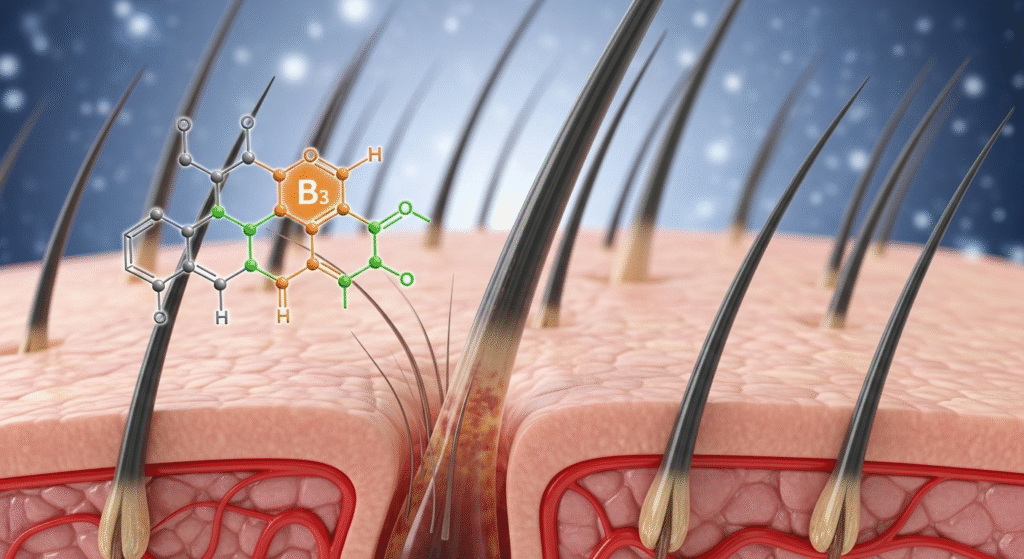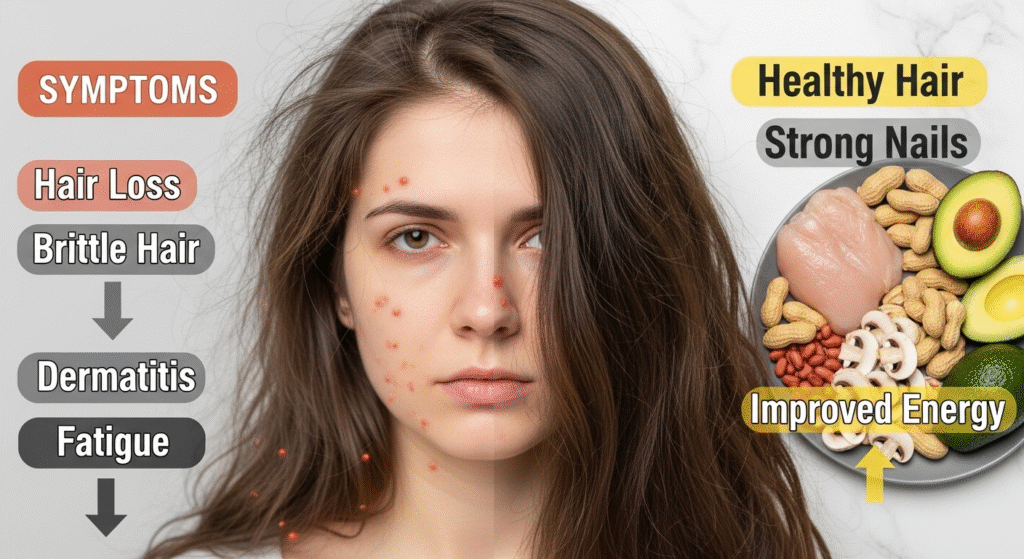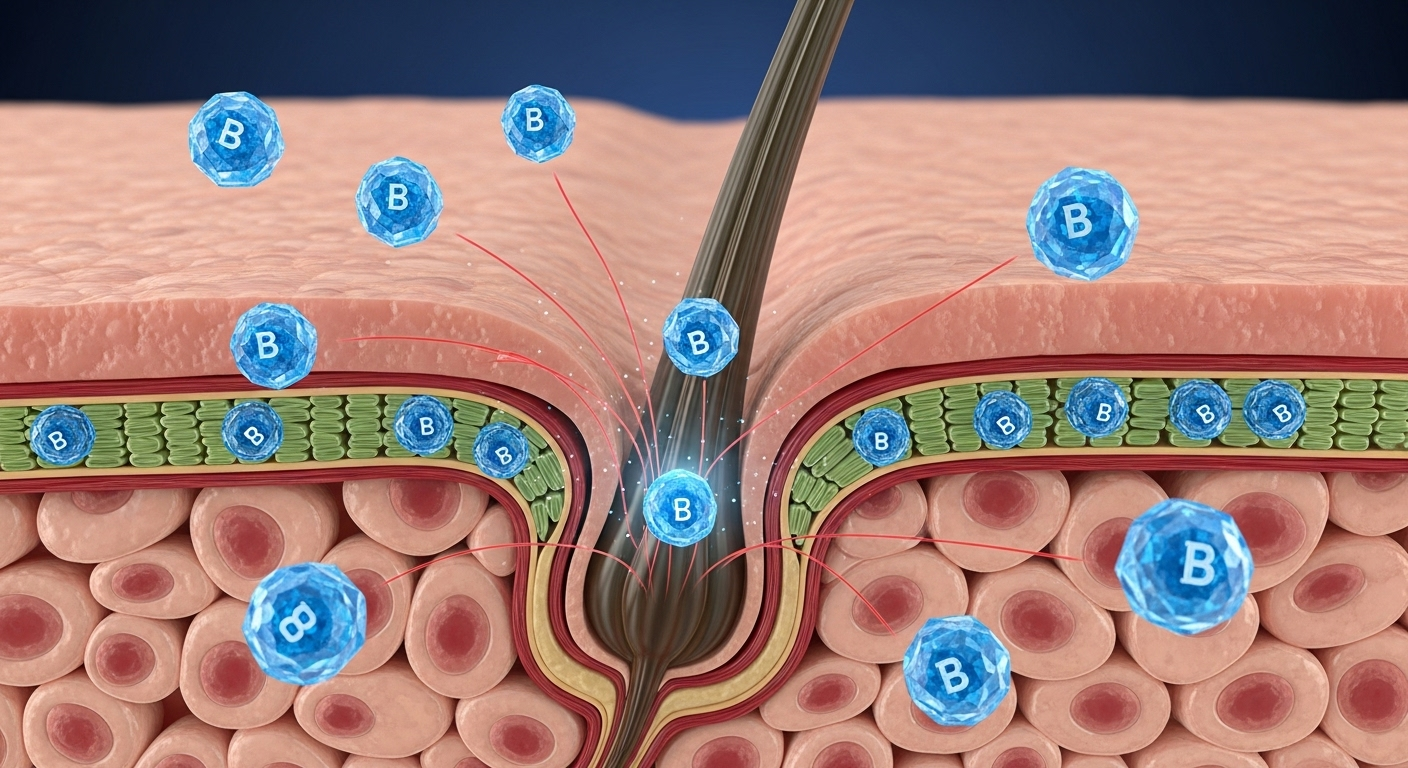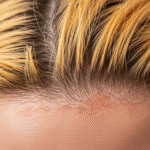Noticing more hair in your brush and wondering if vitamin B3 for hair loss is connected? Vitamin B3—whether as niacin or niacinamide—supports scalp circulation, strengthens follicles, and calms inflammation for healthier growth. In this post, you’ll uncover how B3 works at the cellular level, safe ways to use it both orally and topically, plus expert …
Noticing more hair in your brush and wondering if vitamin B3 for hair loss is connected? Vitamin B3—whether as niacin or niacinamide—supports scalp circulation, strengthens follicles, and calms inflammation for healthier growth.
In this post, you’ll uncover how B3 works at the cellular level, safe ways to use it both orally and topically, plus expert tips to integrate it wisely. Empower your hair health backed by science and trusted guidance.

What Is Vitamin B3 and Why Hair Needs It
Definition—Niacin, Niacinamide, Nicotinic Acid
Vitamin B3 is an essential water-soluble vitamin found in two main forms: niacin (nicotinic acid) and niacinamide (nicotinamide). Both forms convert in the body into coenzymes NAD+ and NADP+, which are vital for cellular metabolism and repair.
For hair, this means a constant supply of energy and nutrients to scalp tissues, enabling healthy follicle function.
Role in Scalp Health: Circulation, Moisture, Keratin Synthesis
Niacin improves microcirculation in the scalp, ensuring follicles receive adequate oxygen and nutrients. Niacinamide, on the other hand, helps maintain the skin barrier, reducing dryness and inflammation—two silent hair enemies. It also aids keratin synthesis, the protein making up 90% of each hair strand.
How Vitamin B3 Supports Hair Growth & Prevents Loss
Enhancing Blood Flow to Nourish Follicles
Niacin’s vasodilating effect increases blood flow to the scalp, improving delivery of growth-essential nutrients .
Combating Inflammation and Oxidative Stress
Niacinamide is a potent anti-inflammatory and antioxidant, calming irritated scalps and reducing oxidative stress that can weaken follicles
Cellular Rejuvenation & Delaying Follicle Resting Phase (Catagen)
A 2021 in vitro study found niacinamide down-regulates DKK-1, a protein linked to follicle miniaturization, effectively prolonging the active (anagen) growth phase.
Scientific Evidence & Clinical Studies
Pilot Study: Topical Niacin for Female Alopecia
A PubMed-indexed trial observed significant hair fullness improvement after six months of applying topical nicotinic acid solutions in women with alopecia .
In Vitro Findings: Niacinamide & Follicle Longevity
Laboratory research demonstrates niacinamide protects dermal papilla cells from aging, supporting long-term follicle viability.
Recognizing Vitamin B3 Deficiency and Its Hair Impact

Pellagra and Hair Loss
Severe vitamin B3 deficiency causes pellagra, a condition marked by dermatitis, diarrhea, dementia, and—in advanced cases—hair thinning due to poor scalp health
Dietary Sources vs Typical Needs
Most people meet daily needs (14–16 mg) through a balanced diet including poultry, fish, fortified grains, and peanuts.
How to Use Vitamin B3 Safely & Effectively
Oral Intake—Recommended Amounts & Upper Limits
For adults, the RDA is 14 mg (women) to 16 mg (men) per day. The upper intake limit is 35 mg/day to avoid side effects like liver toxicity and flushing .
Topical Forms—Serums, Shampoos, Ampoules
Topical niacin products (nicotinic acid) are available as ampoules, scalp serums, and fortified shampoos. Always patch-test first due to potential flushing .
Avoiding Excessive Intake
Megadoses of niacin can cause liver damage and worsen hair shedding in rare cases, so always follow medical advice.
Expert Insights and Patient Experiences
A patient with diet-related hair thinning reported visible improvement in hair thickness within 4 months after correcting niacin intake—showing the importance of addressing deficiencies.
FAQs
Does vitamin B3 actually stop hair loss?
It can help slow shedding caused by poor circulation or inflammation but may not reverse genetic baldness.
Is topical niacin better than oral?
Topical works directly at the follicle site, while oral intake supports overall body and scalp health.
Can too much vitamin B3 harm my hair?
Excessive doses may cause shedding due to liver stress—stick to recommended limits.
How long to wait for results?
Most see changes in 3–6 months with consistent use.
Can niacin reverse pattern baldness?
It may improve density but cannot fully reverse genetic alopecia.
Ready To Take Your Next Step
If you’re noticing unexplained hair loss, discuss vitamin B3 supplementation or topical use with a dermatologist or trichologist.
Consult with Dr. Uzma Irfan, an ISHRS-certified surgeon, hair health specialists for tailored B3 treatment plans.






